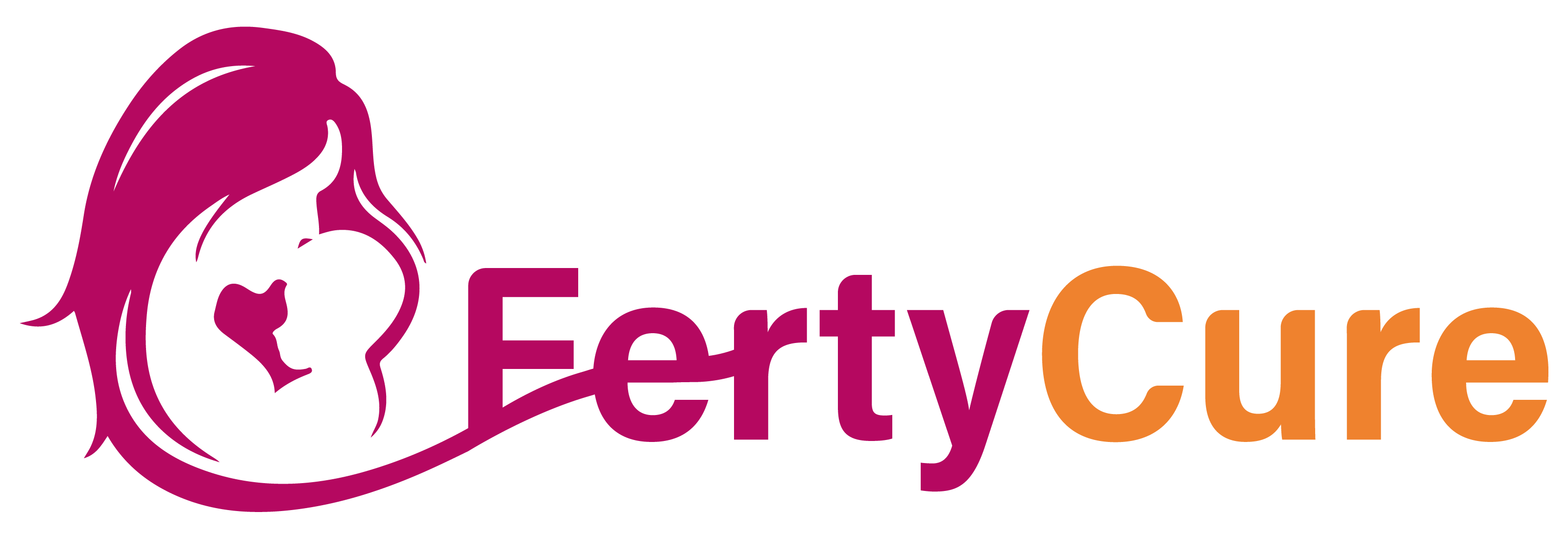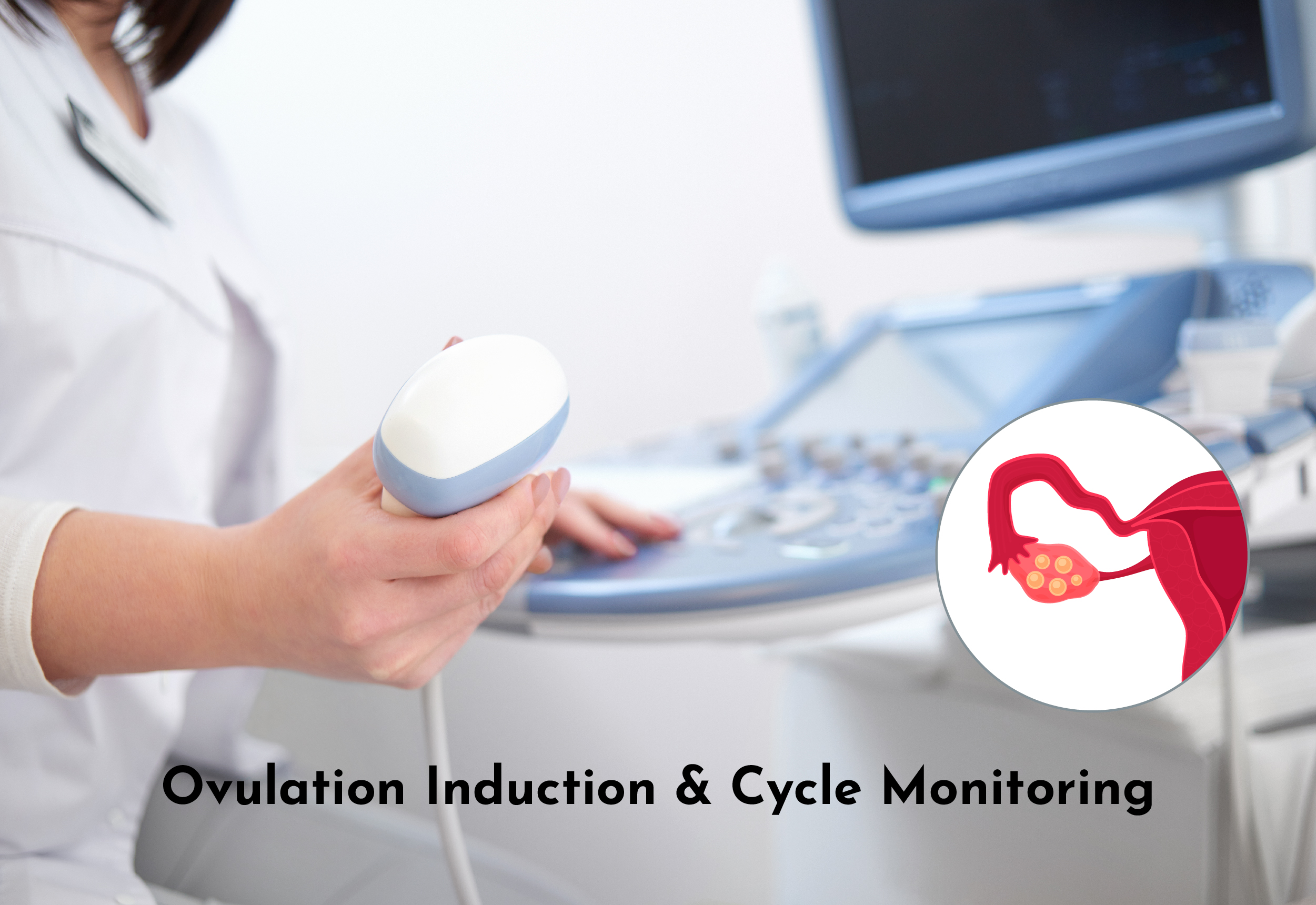Table of Contents
Ovulation Induction & Cycle Monitoring
For couples trying to conceive, understanding the processes of ovulation induction and cycle monitoring can be crucial. These fertility treatments can help women with irregular ovulation or other fertility issues increase their chances of getting pregnant. Let’s understand the ovulation induction and cycle monitoring in simple terms.
Must Read: IVF Twins Explained
What is Ovulation Induction?
Ovulation induction is a fertility treatment used to stimulate the ovaries to produce and release eggs. It’s particularly helpful for women who have irregular menstrual cycles or do not ovulate regularly. The goal is to increase the chances of conception by ensuring that ovulation occurs at a predictable time.
How Does Ovulation Induction Work?
Medications:
- Oral Medications: These medications help stimulate the ovaries by encouraging the body to produce more of the hormones that regulate ovulation.
- Injectable Hormones: These hormones directly stimulate the ovaries and are often used when oral medications are not effective.
Monitoring:
- Ultrasound: Regular ultrasound scans are used to monitor the development of ovarian follicles (which contain the eggs). This helps determine the best time to trigger ovulation.
- Blood Tests: Hormone levels are checked through blood tests to ensure the medications are working effectively and to prevent over-stimulation.
Cycle Monitoring:
Cycle monitoring involves closely tracking a woman’s menstrual cycle to identify the best time for conception. It is often used alongside ovulation induction but can also be beneficial for women with regular cycles who want to maximize their chances of getting pregnant.
How Does Cycle Monitoring Work?
- Baseline Assessment: At the beginning of the menstrual cycle, a baseline assessment is conducted. This includes an ultrasound to check the ovaries and uterus and blood tests to measure hormone levels.
- Tracking Follicle Development: Throughout the cycle, several ultrasounds are performed to monitor the growth of ovarian follicles. This helps identify the dominant follicle (the one most likely to release an egg).
- Hormone Monitoring: Blood tests are done regularly to measure hormone levels, particularly estrogen and LH. A surge in LH indicates that ovulation is about to occur.
- Ovulation Trigger: When the dominant follicle reaches the right size, an hCG injection may be given to trigger ovulation. This ensures that the egg is released at a predictable time, increasing the chances of successful fertilization.
Benefits of Ovulation Induction and Cycle Monitoring:
- Increased Chances of Conception: By ensuring ovulation occurs and timing intercourse or insemination correctly, the chances of conception are significantly increased.
- Controlled and Monitored Treatment: These treatments are carefully monitored by fertility specialists, reducing the risks of complications such as ovarian hyperstimulation syndrome (OHSS).
- Tailored Approach: Treatments are customized to each woman’s specific needs, improving the likelihood of success.
Who Can Benefit from Ovulation Induction and Cycle Monitoring?
- Women with Irregular Cycles: Women who have irregular or absent menstrual cycles due to conditions like polycystic ovary syndrome (PCOS) can benefit from these treatments.
- Unexplained Infertility: Couples with unexplained infertility may find ovulation induction and cycle monitoring helpful in identifying and overcoming subtle issues.
- Advanced Maternal Age: Older women may benefit from these treatments to maximize their fertility potential within a limited time-frame.
- Assisted Reproductive Technologies (ART): Ovulation induction and cycle monitoring are often used in conjunction with ART procedures like intrauterine insemination (IUI) and in vitro fertilization (IVF).
Conclusion
Ovulation induction and cycle monitoring are valuable tools in the journey toward conception. By stimulating ovulation and carefully tracking the menstrual cycle, these treatments increase the chances of successful pregnancy. Understanding these processes can help couples make informed decisions and work effectively with their fertility specialists. With the right approach and support, many couples find hope and success through these advanced fertility treatments.

